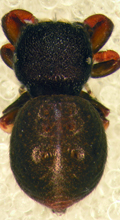Latest News Archive
Please select Category, Year, and then Month to display items
23 April 2020
|
Story Cornelius Hagenmeier
|
Photo Pixabay

The iKudu project, which is an European Union-funded Capacity Building in Higher Education (CBHE) project, has recently launched its blog, which aims to amplify the diverse voices of all iKudu stakeholders. In this space, members of the iKudu team will regularly share their views on the project and related international education topics.
The iKudu project focuses on developing a contextualised South African concept of Internationalisation of the Curriculum (IoC), which integrates Cooperative Online International Learning (COIL) virtual exchanges. The project was launched by the UFS in 2019, together with nine European and South African partner universities. It is funded by the European Union’s Erasmus+ programme with EUR999 881 (approximately R20 million) and is implemented over a three-year period.
The iKudu project is based on the fundamental belief that it is necessary to rethink internationalisation in an uncertain world. First, it is crucial to recognise and transform the power dynamics underlying international academic collaboration. Second, it is essential to develop pedagogies that allow every student to participate in international education, integrating technology where appropriate.
However, while all stakeholders agree on the fundamental tenets of the project and its principal goals, all iKudu stakeholders contribute different perspectives. In the blog, the iKudu stakeholders will provide a space for intellectual discourse on the project and related international education topics, which will allow constructive and critical engagement.
The link to the blog can be found at: https://www.ufs.ac.za/ikudu/ikudu-blogs/Transforming-Curricula-through-Internationalisation-and-Virtual-Exchanges
UFS entomologists describe a new spider species
2014-02-19
|
 |
It is about 3mm in size and almost looks like a ladybird, but this new spider is the cause of great excitement at the University of the Free State’s (UFS’s) Department of Zoology and Entomology.
The new species of spider, now known as Rhene amanzi, was recently described for the first time and was ‘introduced’ to other arachnologist at the recent congress of the African Arachnology Society at Amanzi Private Reserve.
Dr Charles Haddad, senior lecturer in the UFS’s Department of Zoology and Entomology, said they already stumbled upon the male spider in 2010 when a student was doing research at the reserve. After a very long process, the spider was described and a couple of weeks ago, whilst at the congress, they also found the female.
“Up to now we only know that the spider lives in trees in the Brandfort area. The range could be wider, but since it was only described recently, other arachnologists will only now be able to identify accurately.”
Dr Haddad says they still have to determine how many eggs the female is able to lay, what the spider’s life cycle looks like and what their habitual preferences are.
“What we do know is that it probably isn’t poisonous and that the spider imitates a ladybird in order to protect itself against predators.”